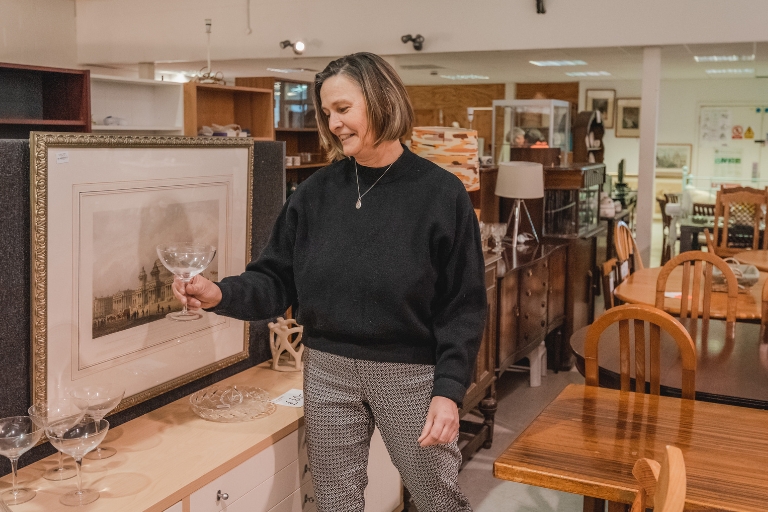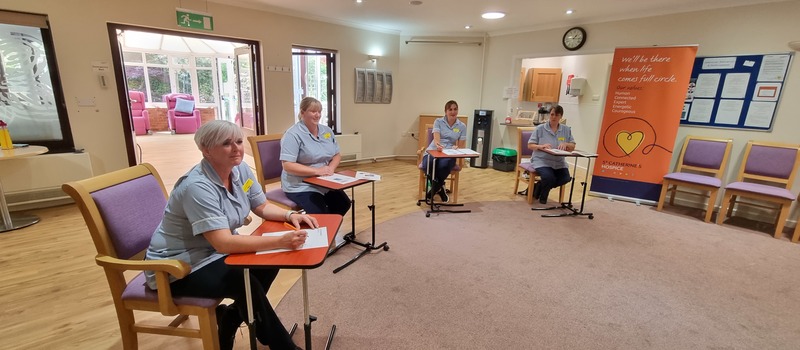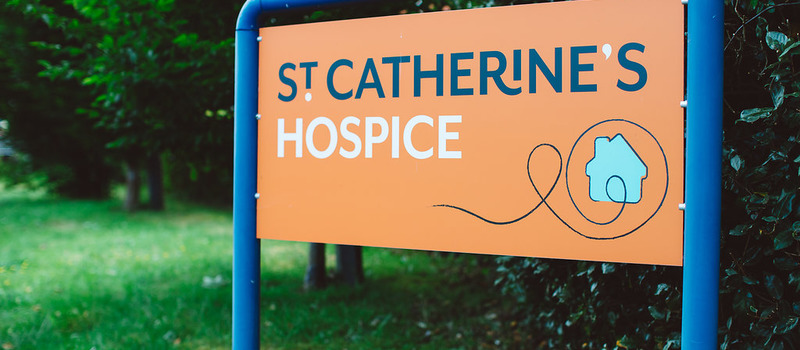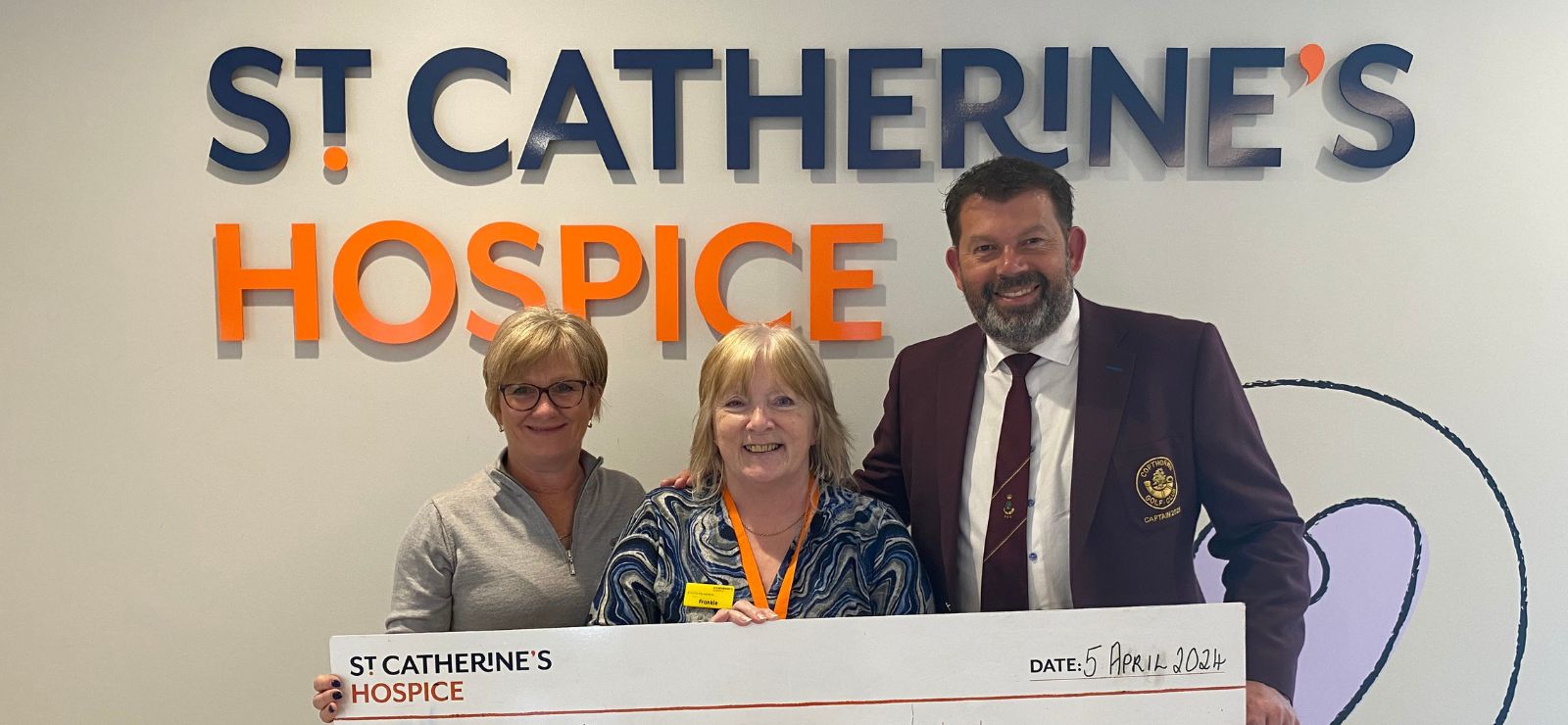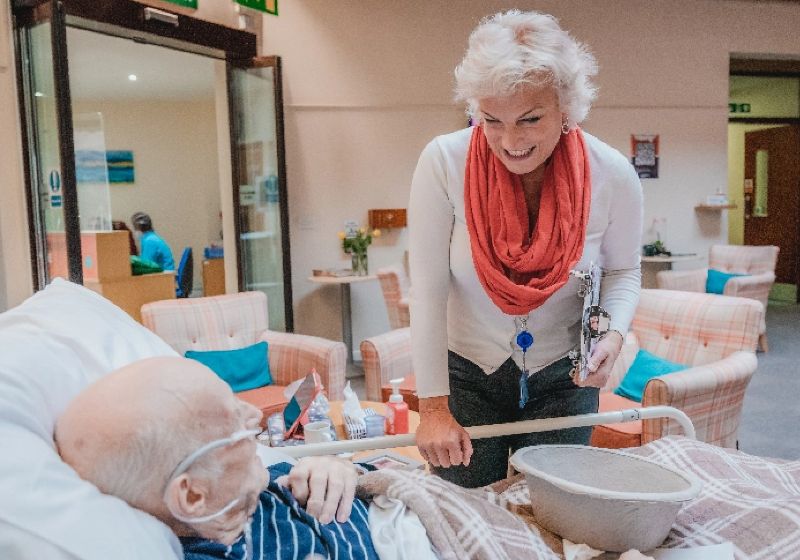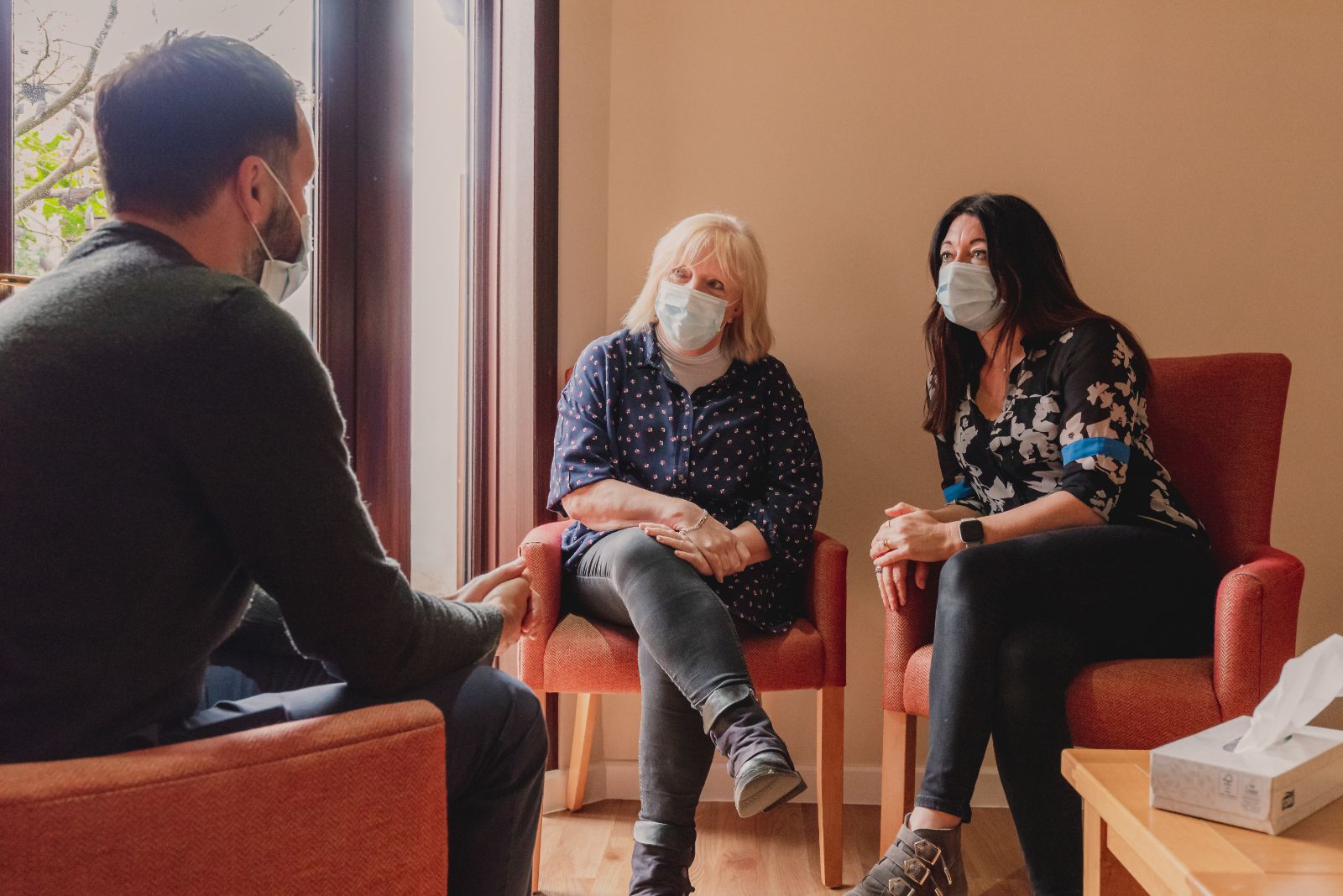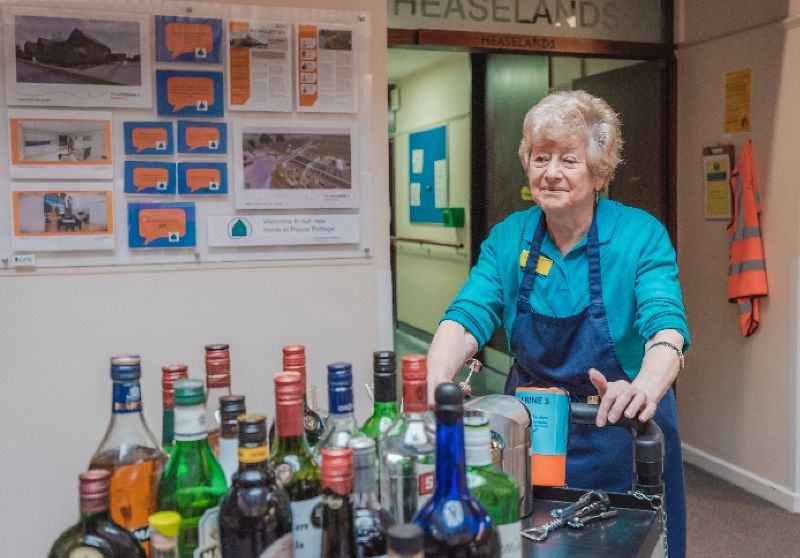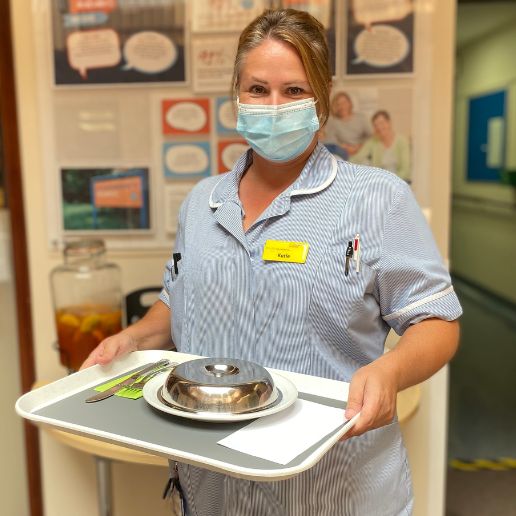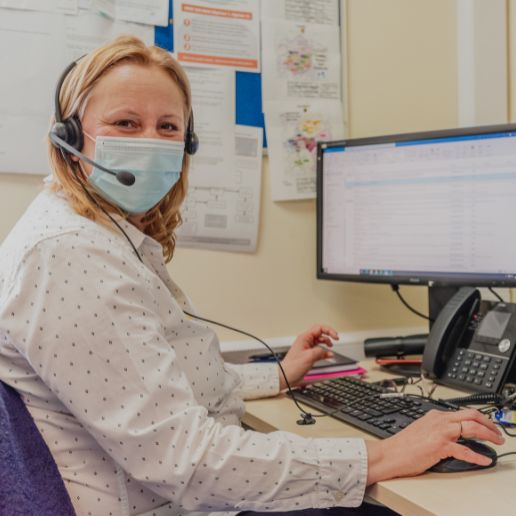Training our Healthcare Assistants to provide the best possible care
As part of our expert value, we recently started some new training, the St Catherine’s Hospice Palliative Care Award for our Healthcare Assistants (HCAs).
Here, Natalie Clow, Senior Staff Nurse who helped develop the training shares more.
“We’ve delivered 4 sessions of training so far, plus a pilot, and have had 11 of our HCAs take part but we’re rolling out more training sessions for the rest of our HCAs
The training is different to the NVQ and Care certificate training our HCAs already undertake as this award training is more end-of-life care specific and is designed to ensure our HCA colleagues have all the skills and knowledge they need in order to work in our specialism. It’s a programme adapted from the Passport training that St Michael’s Hospice in Hastings deliver, and the stop, look, care approach which was devised by Brighton and Hove CCG.
St Catherine’s Hospice Palliative Care Award is a six-module programme aiming to help HCAs build their confidence and skills in caring for people with life limiting illness on our wards and in our community. It provides theory which is related to end-of-life care and opportunities for people to demonstrate their knowledge and skills in practice.
With this training we aim to use our expertise in end of life care to provide a better career structure for colleagues so that we develop and grow our own people.
The training programme consists of;
- 6 taught modules
- A individual or small group presentation by HCAs to the Director of Nursing about a quality initiative they would like to implement in the hospice
- Sign off the knowledge and skills that is aligned with HCAs job descriptions.
Modules include:
The Essence of Providing Quality and Compassionate End of Life Care – Understanding what this means, knowing we only have one chance to get it right for our patients and their families. We also explore the vital role of our HCAs, how we can support a good death and explore communication.
Communication and Documentation at end of life – Good communication skills are at the heart of providing quality, dignified care. This module will consider ways that we can improve our communication skills and use advance care planning to improve each patient’s ability to make their own decisions and choices wherever possible.
Care in the Last Days of Life – We will look at the knowledge and skills required to care for a person who is approaching the last few days of their life. This includes recognising the deteriorating patient, engaging in conversations with families and carers to promote involvement and understanding that someone’s last few days of life are a time for honesty, sensitivity and compassion. We will also identify coping strategies for HCAs and colleagues when working in these difficult situations.
Care for Someone with a Neurological Condition at End of Life – Helping someone to improve quality of life, maintain function and maximise comfort are all principles associated with good end of life care. This module will help our HCAs to develop skills and understanding in how they can support people we care for with a neurological condition to achieve a good death. This module covers; communication, identifying symptoms, the role of a carer in supporting someone with a neurological condition, helping families to plan ahead and legislation that underpins mental health and end of life care amongst other things.
Loss and Bereavement and Care after Death – Quality end of life care doesn’t stop when a person dies. The need for care and compassion, together with dignity and respect, continues until the person leaves our care or hospice. Families and carers may continue to need support after their loved one has died and this module helps our HCAs understand what care is needed after death, the manifestations of grief and how to support someone’s bereaved family/friends while looking after themselves too.
Practical/Clinical Skills needed for end of life care – Many practical and clinical skills are needed in order for us to feel confident in caring for patients at the end of life. This module will help HCAs to develop their skills in skin changes in patients, identifying UTIs, understanding why fluids and nutrition are important at the end of life, the importance of effective mouthcare, how and why it’s important to monitor someone’s blood sugar levels, scoring and recording pain and what tools can help to do this and basic observations.
When colleagues have completed all 3 elements of the training programme they will have completed the award, and will receive a certificate and badge at an award ceremony.
The feedback from the training so far has been brilliant, and we’ve had some constructive feedback that we’re already working on.
Some of our HCAS who have already completed the training said:
“I’m new to the role so it was all valuable learning, and I will apply all my new learning to my daily activities and all aspects of my role”
“The content was all useful. Everything was explained well and there was time for questions”
“I found the course very useful and interesting”
“The course was very well presented and easy to follow”
“It was good to refresh on our values and think about how to improve the service we offer.”
We will also be adapting and starting Palliative Care Award training for our nurses as well.”

We’re always looking for talented people to join our St Catherine’s team. If you are interested in joining our hospice, in a care or non clinical role, please take a look at our latest vacancies


